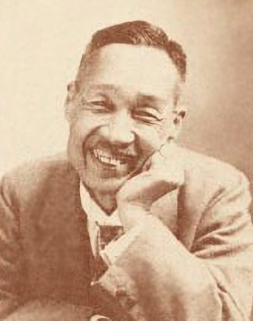Morita Therapy - Arugamama ‘Accept reality as a whole’
Dr. Shoma Morita (1874-1938)
I am writing to share my passion for Morita therapy and my interest in exploring its application here in New Zealand.
Dr. Shoma Morita (1874–1938), a Japanese psychiatrist, introduced the philosophy of 'Arugamama' (Accept reality as a whole) to help his patients. This concept encourages individuals to view their mental health challenges as an integral part of their life journey, promoting a holistic perspective that reduces self-judgment and blame.
More details of Arugamama:
"Arugamama" (あるがまま) is a Japanese term that translates to "as it is" or "as things are". In the context of Morita therapy, arugamama refers to the principle of accepting things, including one's feelings and symptoms, without trying to change or control them. It emphasizes acknowledging reality and finding a way to live constructively despite challenging circumstances.
Acceptance:
Arugamama emphasizes accepting both positive and negative aspects of life, including emotions like fear, anxiety, or discomfort, without trying to resist or suppress them.
Living with Reality:
It's about acknowledging what is, even if it's not what one desires or hopes for, and finding a way to live in the present moment.
Constructive Action:
Rather than being consumed by trying to change or escape difficult feelings, arugamama encourages taking constructive action in one's life, regardless of one's emotional state.
Connection to Morita Therapy:
This concept is central to Morita therapy, a Japanese approach to mental health that focuses on acceptance, action, and aligning with nature.
Contrast with Neurotic Tendencies:
Arugamama is contrasted with neurotic tendencies where individuals try to escape or control their feelings, which can lead to a cycle of avoidance and further suffering.
A key aspect of Morita therapy is its unique approach to rest and motivation. Unlike Western practices that often encourage increased activity, Dr. Morita advised patients to "have a rest, sleep, and eat. You do not do anything until you get motivation to wake up and do something." He believed that for individuals experiencing mental health issues, regaining motivation is crucial as it provides hope, energy, and resilience for recovery. He observed cases where patients rested for several months before their motivation naturally returned, leading to significant recovery.
As a Japanese trauma specialist in New Zealand, I work with diverse populations, including Māori, Pasifika, Asian, Indian, and other minority ethnic groups. I've found that traditional Western and European therapeutic approaches sometimes do not fully align with their cultural, customary, philosophical, and spiritual perspectives. However, I have noticed that Morita therapy and the 'Arugamama' concept resonate well with these clients, as well as my Pākehā and European clients. Many have shared that 'Arugamama' has significantly contributed to their resilience, tolerance, and self-esteem during their recovery journey.
Although Morita therapy is not yet widely known in New Zealand, I am eager to further explore its concepts and practice models to gently and respectfully support my clients.



